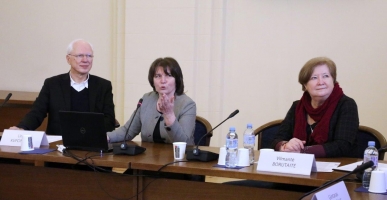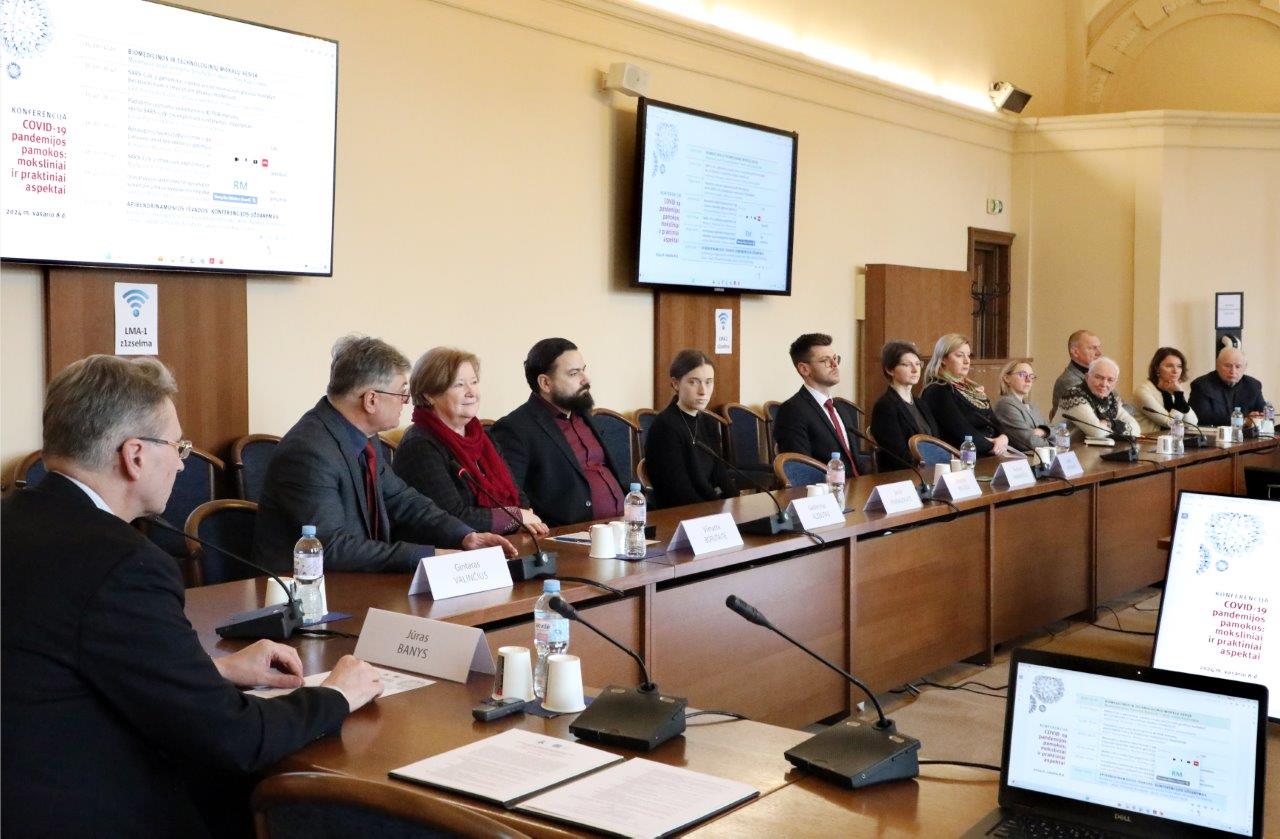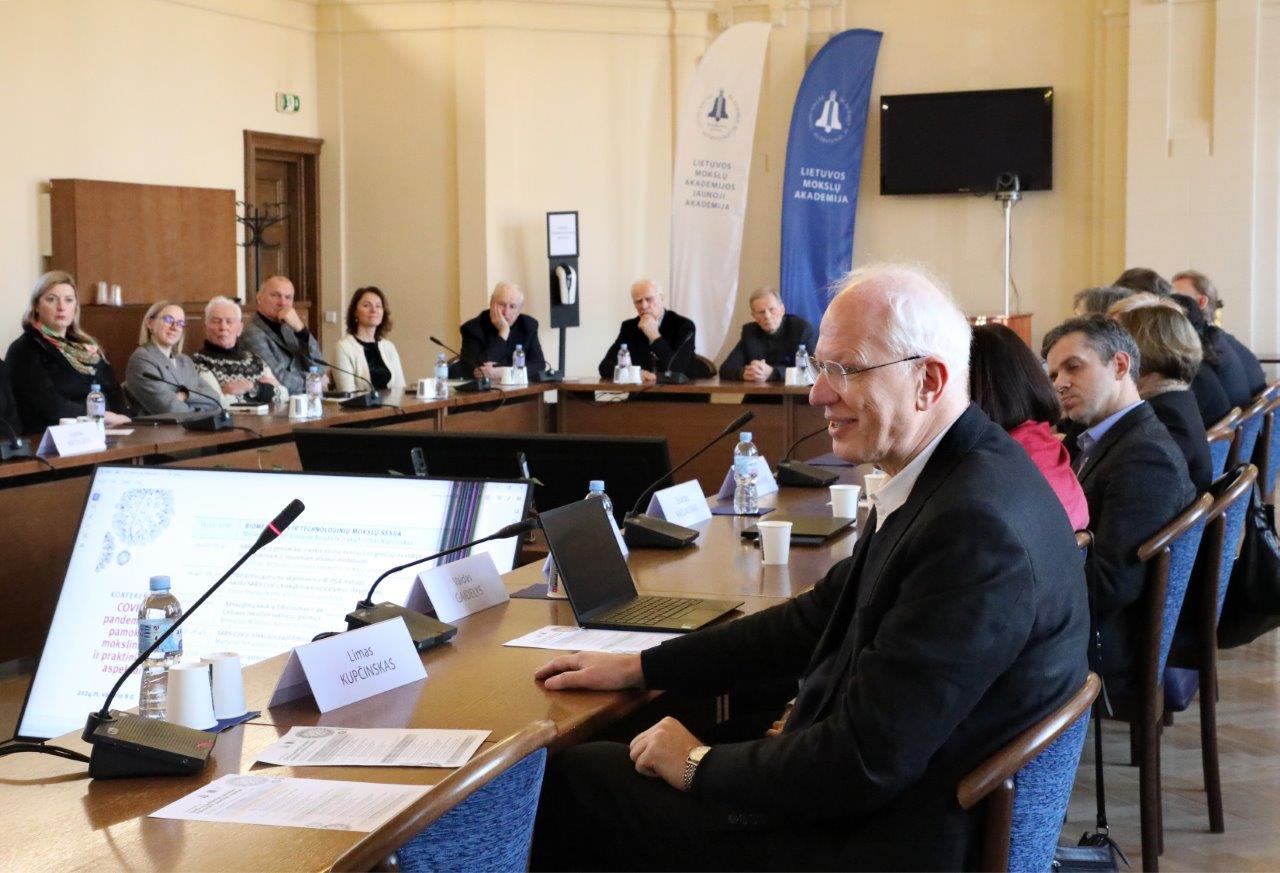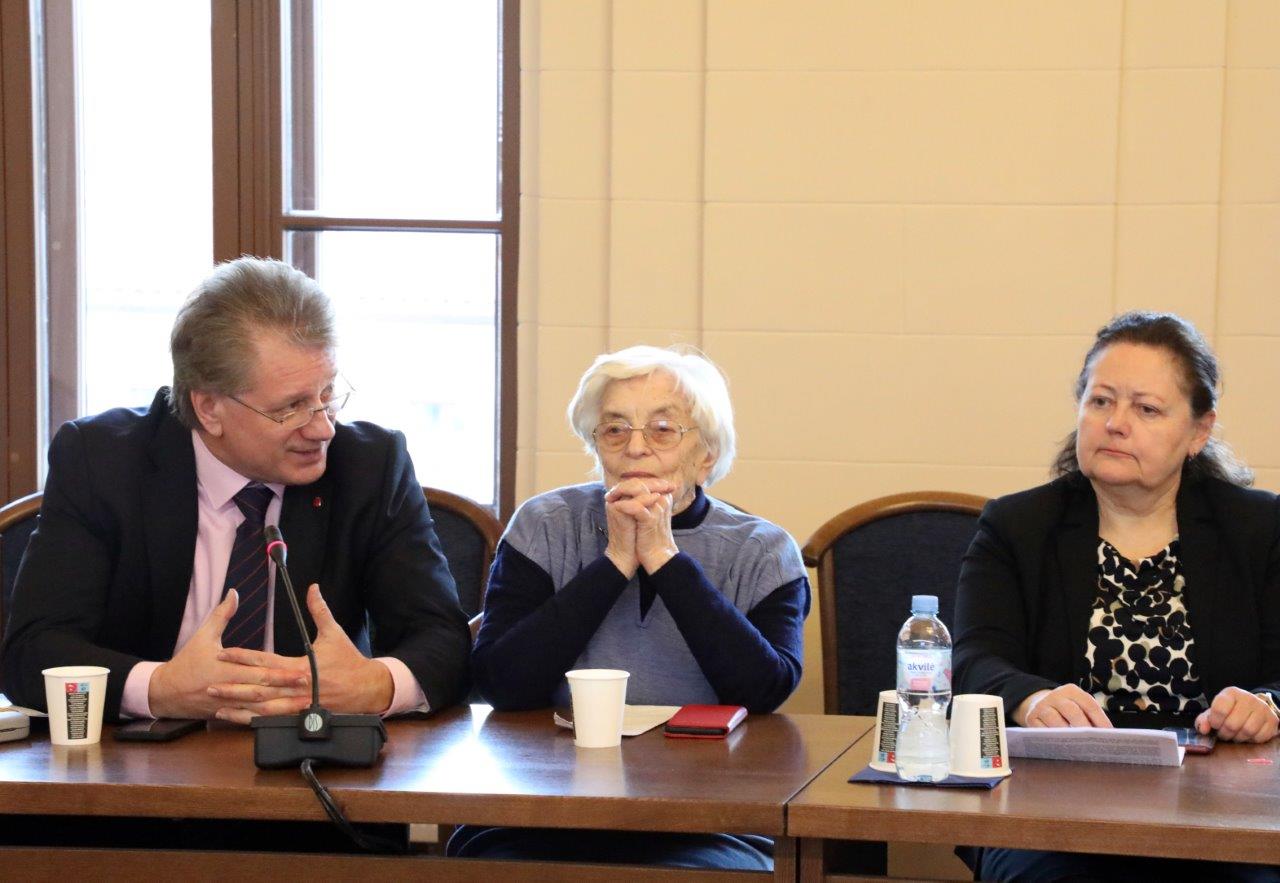Events
Scientists discussed the lessons learned from COVID-19 pandemic
14 02 2024
On February 8th, 2024 the Lithuanian Academy of Sciences (LAS) together with the Research Council of Lithuania (RCL) organized the conference "Lessons learned from COVID-19 pandemic: scientific and practical aspects", where COVID-19-related scientific projects implemented in various Lithuanian scientific institutions were presented.
The recent COVID-19 pandemic had a huge impact on the health care system, the economy and the financial sector in many countries. On the other hand, the pandemic has provided valuable lessons that might be useful in dealing with similar global threats. The challenges caused by the pandemic have been analyzed not only by the governments and international organizations, but also by scientists, whose insights may contribute to the management of global crises in the future. To encourage scientists to focus their efforts and search for innovative solutions to control COVID-19 pandemic and overcome its consequences., RCL funded more than 70 scientific projects in 2020-2022. The results of the projects were published here
The organizing committee of the conference (Acad. A.Žvirblienė, Acad. L.Kupčinskas, Acad. V.Borutaitė, Dr. J.Olechnovičienė) selected 10 RCL-funded projects within the fields of Social sciences, Biomedicine, and Technology to be presented at the conference.

Conference participants were welcomed by the President of LAS Acad. J. Banys, the Chairman of RCL prof. G. Valinčius and Acad. L. Kupčinskas. In the session of Social sciences, the social and economic models for overcoming crisis were presented, the consequences of the pandemic on the educational process, and the psychological state of children and adolescents were discussed. In the session of Biomedical and Technological sciences, innovative methods of diagnosis, prevention and treatment of COVID-19, the results of research on herd immunity were presented.

At the end of the conference, the participants discussed about the importance of a dialogue between scientists and the general public in order to strengthen public trust in science and reduce the impact of misinformation. The organizers of the conference noticed that the presentation of scientific results in a way understandable to the general public remains a great problem, as most scientists do not devote enough attention and efforts to outreach activities. For many scientists, it is easier to write a specialized text overloaded with academic terms than a short and clear presentation of their research. This does not contribute to reducing the gap between scientists and the general public. Therefore, more attention should be paid to presenting scientific achievements so that the society knows what projects are being implemented. The importance of science communication is also recognized by the RCL, that will evaluate the outreach activities in the ongoing tenders for RCL funding.

The organizers of the conference prepared a draft Resolution that summarizes the insights of scientists and provides their recommendations to decision makers. After discussions and receiving the notes from the experts in the field of Social sciences, the text of the Resolution will be published on the website of the LAS.
Acad. Aurelija Žvirblienė, Chair of the conference organizing committee
